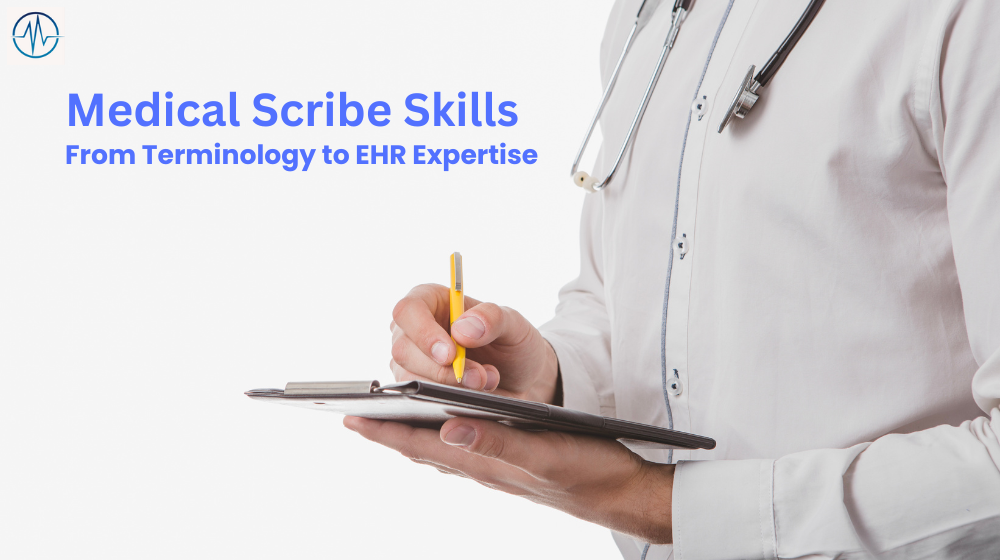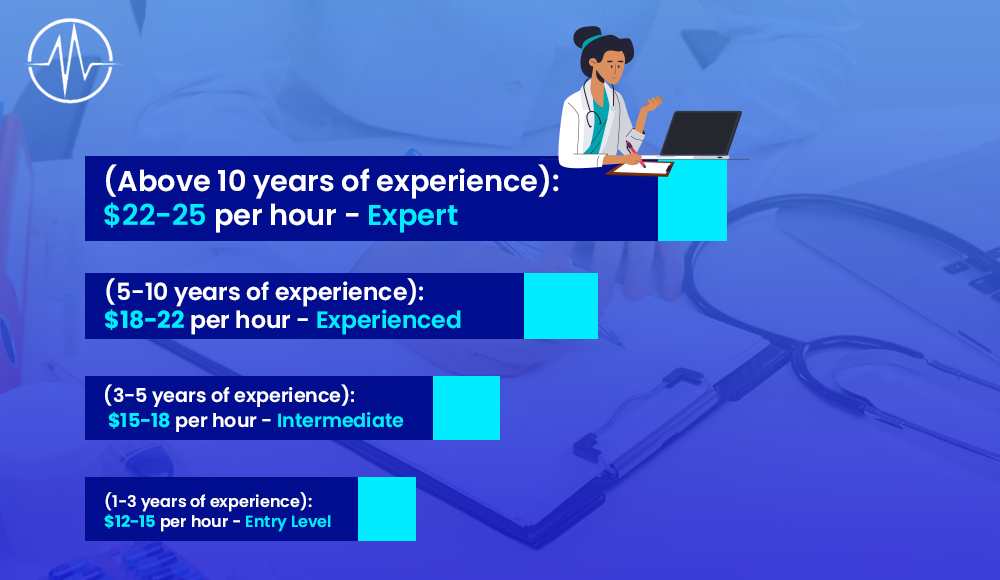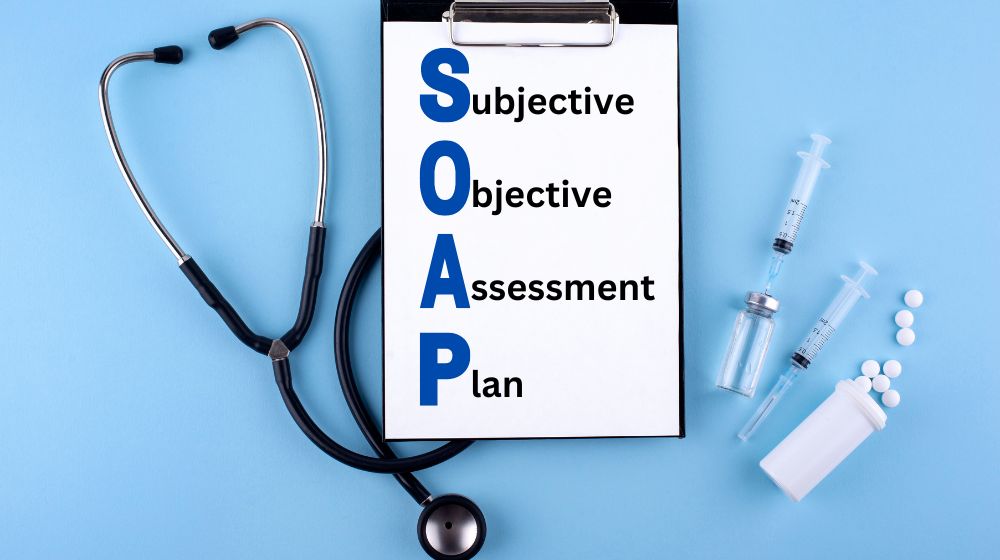Medical scribe skills require a solid foundation in several key areas of healthcare knowledge. As a medical scribe, you’ll be an essential part of the healthcare team, ensuring accurate and real-time documentation of patient encounters.
To excel in this role, it’s crucial to have a good grasp of medical terminology, which includes understanding anatomy, diagnostic terms, and procedures. Familiarity with medical billing and coding is also beneficial, as it adds value to your skill set and helps with administrative tasks. Knowing the ins and outs of HIPAA regulations is another vital aspect, as you’ll be responsible for ensuring patient confidentiality and data security.
Additionally, proficiency in electronic health records (EHR) systems is essential since you’ll be documenting patient information digitally. These core healthcare skills are fundamental for anyone aspiring to become a successful medical scribe, enabling you to support healthcare professionals effectively and contribute to delivering high-quality patient care.
Let’s dive into key aspects of medical scribe skills in this blog.
Essential Healthcare Skills Required to Become a Medical Scribe
Becoming a medical scribe requires some vital clinical and healthcare-related knowledge. So, what exactly does a scribe need to know? Let’s start talking about the crucial medical scribe skills you need to be aware of:
Medical Terminology:
A medical scribe must be familiar with different medical terminology, like anatomy, diagnostic terms and more.
Medical Billing and Coding:
If you want to be a scribe for doctors, having knowledge on medical coding and billing is beneficial. Being proficient in these areas adds value to your skillset.
HIPAA Regulations:
The critical responsibility of a medical scribe is to ensure that the healthcare setting is in compliance with Health Insurance portability and Accountability Act or HIPAA. So, understanding HIPAA regulations is most important.
Electronic Health Records (EHR):
The main role of a scribe is to document the patient’s medical records in real-time via EHR. So, if you ever wish to start your career in medical scribing, you must have detailed knowledge about the electronic health record system.
5 Essential Medical Scribe Skills That Make You Better
A medical degree is not essential to be a medical scribe. However, comprehensive training, education and experience are fundamental to become successful in this field. Here we are going to discuss about 5 vital medical scribe skills that boost your journey of becoming a scribe for doctors:
Quick Learning Ability:
If you want to go forward with a medical scribing career option, you should learn about the ins and outs of medical terminology, studies and documentation. Within the first week of work, it is vital to have detailed information about government regulations (HIPAA). You should also have a clear understanding of the roles and functions of scribing in a clinical setting.
Additionally, proficiency in using the Electronic Health Record (EHR) system helps you to become a successful one in this field. Great listening skill and typing ability of at least 70 words per minute with 95% accuracy are much required.
Grasp on Medical Terminology:
Medical scribes have to closely work with physicians and healthcare professionals to document every patient encounter promptly. So, it is important for you to be aware of various medical terms, anatomy, diagnostic codes, procedures and more.
Popular healthcare settings looking for pre-med students as a scribe for doctors, as they typically have better knowledge on medical terminology. Therefore, if you are not from a medical background, try to develop expertise in this field.
Effective Communication:
Another crucial skill of a medical scribe is to have an excellent communication power. Scribes for doctors have to assist the physicians in providing quality patient care. They need to properly understand every physician-patient encounter and document them accurately. So, clear communication and concise writing skills are vital to be a scribing expert.
Ability to Manage High-Pressure Situation:
Every clinical environment is fast-paced and inherently stressful. This is the place where life-and-death decisions are made every single minute. Therefore, it is a medical scribe’s responsibility to function efficiently amidst such chaotic ambience and documenting critical information without any error. Additionally, you need to be steady, calm and courageous to work under such pressure.
Continuous Skill Improvement:
The healthcare industry is continuously evolving with new treatments, regulations and public health needs. So, if you want to be a successful medical scribe, then staying updated with these changes are essential.
Additionally, beyond technical skills, having a caring heart, desire to help those in need and urge to improve your medical scribe skills and qualities are some other essential checklists that you should have.
The Final Thoughts
The career of a scribe is a rewarding opportunity for meaningful contribution to the healthcare field. Stepping into the medical scribing world with no prior experience may be quite challenging.
But fear not! By conducting thorough research and pursuing required certification, you can easily enhance your medical scribe skills and gain hands-on experience.
Good luck for your future career!







